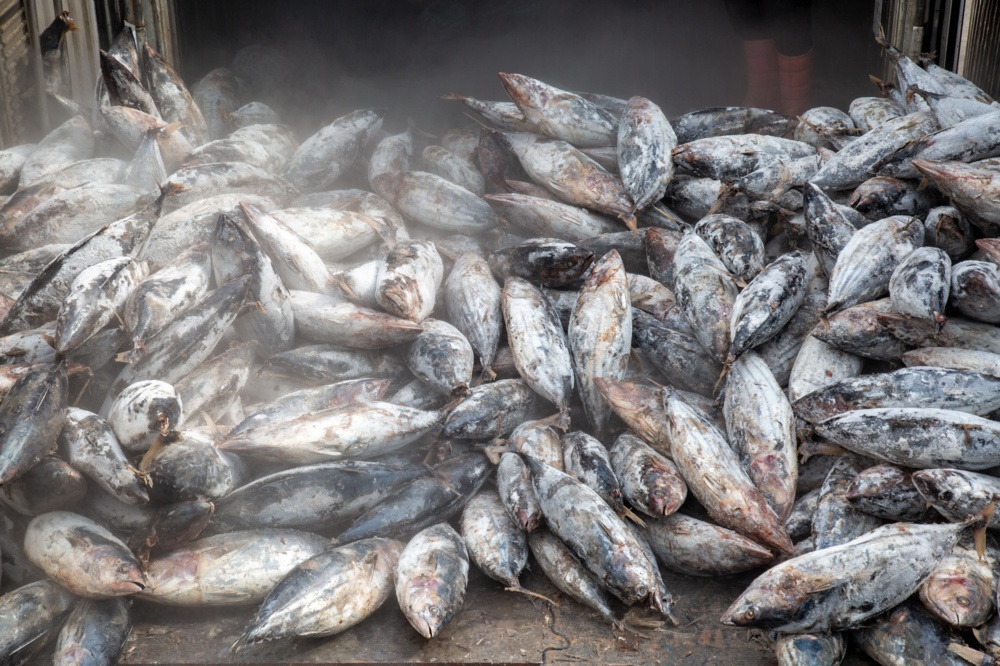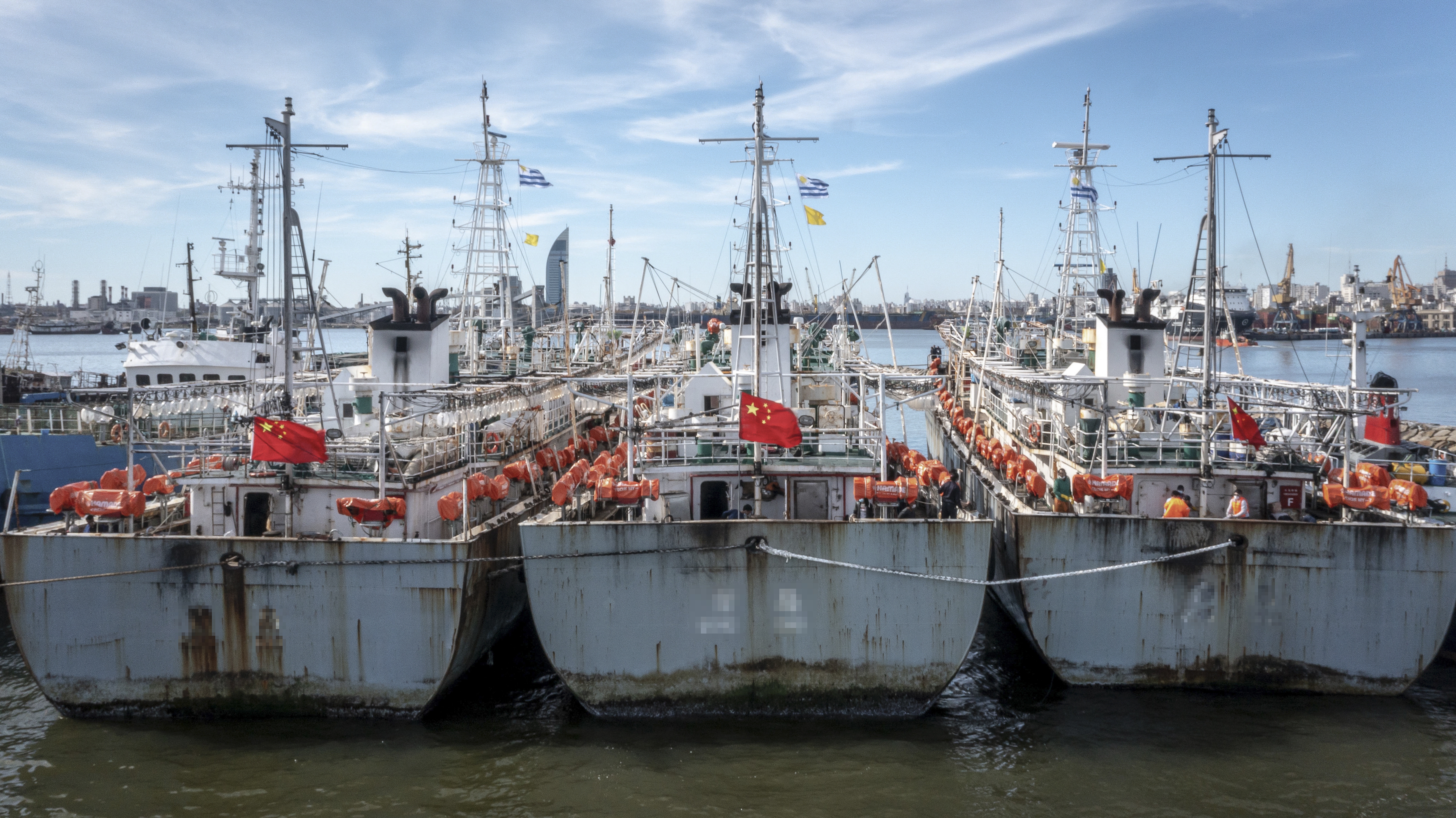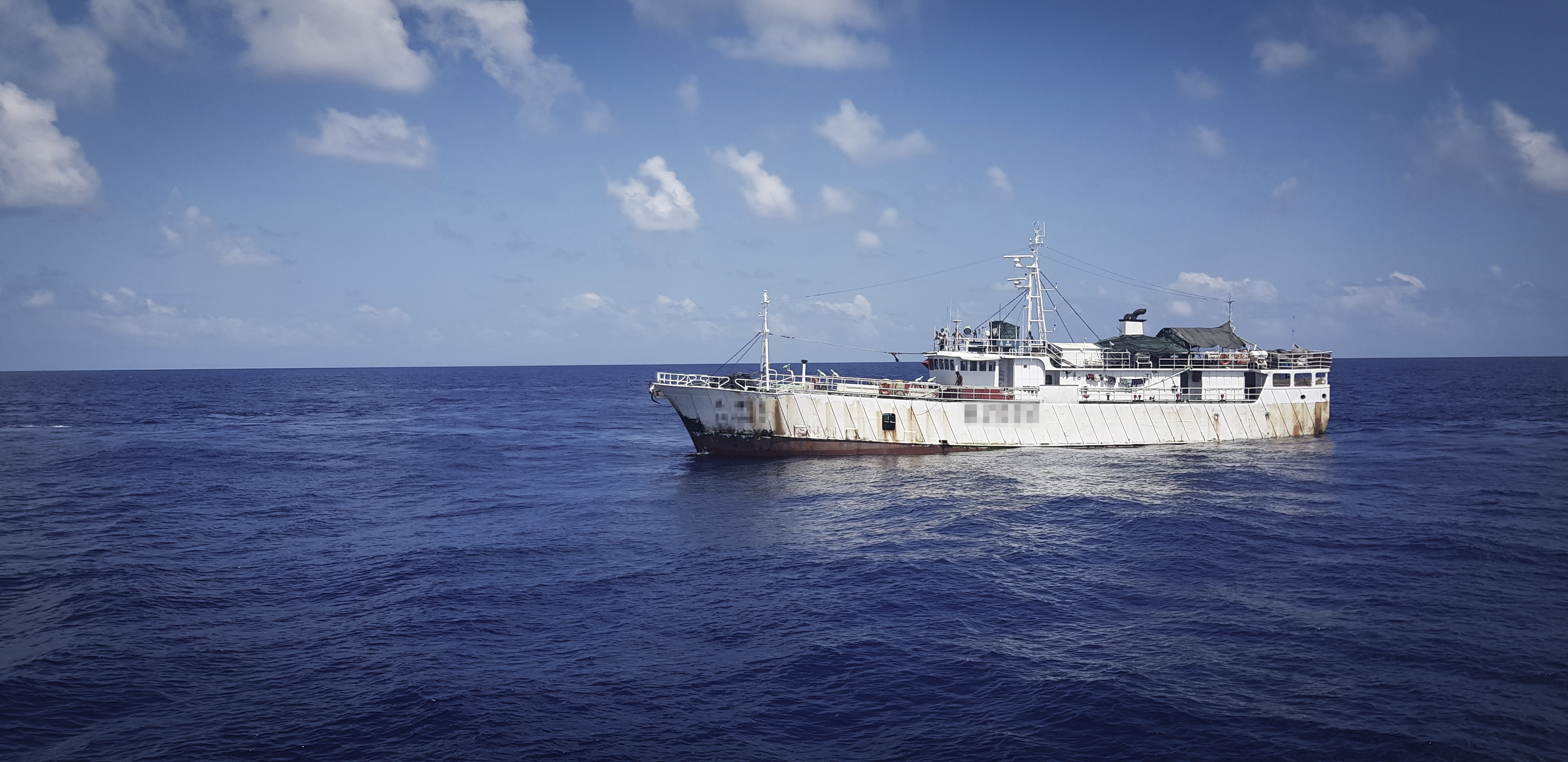
Zhejiang Ocean Family's fishing fleet: revealing concerns about illegal fishing and human rights abuse
The Environmental Justice Foundation (EJF) has today published a comprehensive report unveiling troubling revelations surrounding the operations of the Zhejiang Ocean Family Co., Ltd. (ZOF), a major seafood industry player with extensive Chinese and global seafood supply chain links. ZOF contributed 14.63% of China's total tuna production in 2020, and seafood tainted with human rights abuses and environmental destruction could be entering international supply chains on a significant scale, ending up on the shelves of household-name retailers.
12 vessels owned or chartered by ZOF or its subsidiaries were involved in human rights abuses and/or illegal, unreported, and unregulated (IUU) fishing activities, such as shark finning and the deliberate killing of cetaceans. One fisher aboard a ZOF vessel reported his boat would catch turtles, sharks, whales and even penguins. Human rights abuses were also reported across these vessels, including physical abuse, salary deductions, human trafficking, and forced labor, which crew told EJF led to the suicide of one crew member due to depression and the death of another due to illness.
EJF's report, which draws on crew members' testimonies, photographic and filmed evidence, AIS data, and open-source intelligence, meticulously outlines the IUU fishing and human rights abuses committed on the company’s vessels.
Public company records, released as part of a failed attempt to list the company on the Shanghai Stock Exchange in 2023, reveal connections with major international seafood distributors, including FCF, Mitsubishi, Maruha Nichiro Corporation and Tri Marine Group. These companies in turn supply many household brands including Amazon, Bumble Bee Foods, Rakuten, Walmart, Marks and Spencer and Carrefour. There is no suggestion that any of these companies were aware of the abuses perpetrated by ZOF, but they may have unknowingly sold products from the 12 vessels investigated by EJF.
The Chinese government has provided substantial subsidies to support the fleet, amounting to US$10.9 million in 2019, US$12.1 million in 2020, and US$11.3 million in 2021. Under Chinese law, these subsidies are liable to be recouped from companies responsible for abuses such as those reported in this investigation, but there is no indication this has taken place.
These vessels are reliant on at-sea trans-shipment - the exchange of fish and sometimes crew - with refrigerated cargo vessels flagged to Panama, Korea, and China. This practice allows their products to quickly reach markets in various countries, including Korea, Japan, and France (via French Polynesia). This trans-shipment also means that vessels were able to remain at sea for extended periods, sometimes up to two years, without returning to port. This facilitated their illicit activities and the abuse of crew, who had no opportunity to escape from the vessels where the abuses were reportedly taking place.
The investigation also includes recommendations to flag states, port states, market states, and relevant Regional Fisheries Management Organizations (RFMOs) to address the need for transparency, sustainability, and ethical fisheries. EJF calls on stakeholders, governments, and organisations worldwide to promote positive change in the industry, in particular by enshrining the principles of the Global Charter for Transparency into law.
Steve Trent, EJF CEO and Founder, said: “We have uncovered a systematic web of exploitation orchestrated by the ZOF fleet, with human rights violations and deliberate wildlife decimation likely reaching into the global market.”
“Governments must introduce rigorous monitoring, port inspections, and import controls; policymakers must investigate and purge tainted supply chains; and global seafood buyers must demand accountability and traceability. The Zhejiang Ocean Family has been getting away with illegal fishing and human rights infringements for far too long. It is time stakeholders and governments alike finally step up to regulate the industry. The fish on our plates must not come at the cost of people, wildlife and our shared natural world.
“The wide scale adoption of and support for the Global Charter for Transparency would enable all parties, including fisheries managers and enforcement agencies, retail interests and even consumers to see who is fishing what, where, when and how and make informed choices to favour genuinely sustainable, legal and ethical operators, while refusing those who don’t play by the rules”.
ENDS
Notes to editor
Read the full report here.
To protect the identity and safety of our sources, case studies of the individual vessels are not published but are available upon request.
EJF works internationally to inform policy and drive systemic, durable reforms to protect our environment and defend human rights. We investigate and expose abuses and support environmental defenders, Indigenous peoples, communities, and independent journalists on the frontlines of environmental injustice. Our campaigns aim to secure peaceful, equitable, and sustainable futures.
Our investigators, researchers, filmmakers, and campaigners work with grassroots partners and environmental defenders across the globe. Our work to secure environmental justice aims to protect our global climate, ocean, forests, and wildlife and defend basic human rights. For more information or to speak to one of our expert analysts, please contact media@ejfoundation.org
SIGN UP FOR OUR EMAILS AND STAY UP TO DATE WITH EJF

